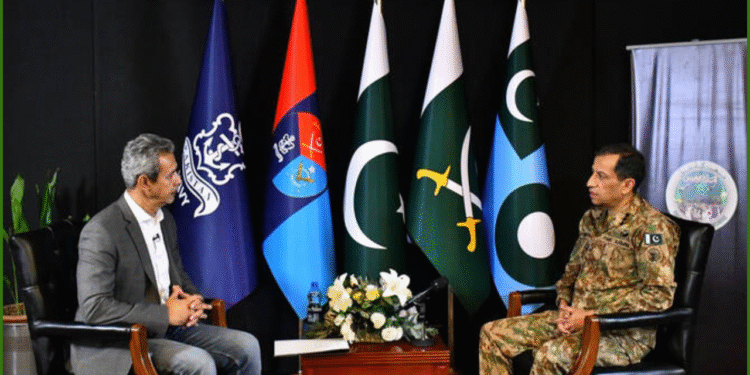Islamabad, May 18, 2025 – Pakistan’s military has issued a stern warning to India, cautioning that any attempt to disrupt the flow of water from the Indus River system would lead to severe and long-lasting repercussions. The statement comes amid heightened tensions between the two nuclear-armed neighbors, following India’s recent decision to suspend the Indus Waters Treaty (IWT) and threats to block Pakistan’s water share.
In an exclusive interview with a regional news outlet, Lieutenant General Ahmed Sharif Chaudhry, Director General of Pakistan’s Inter-Services Public Relations (ISPR), described India’s potential move to weaponize water as an act of aggression. “No one should dare to tamper with the water supply of over 240 million people,” he said. “Such a reckless decision would unleash consequences that would echo for generations, and the global community would witness the fallout.”
Escalating Tensions and Treaty Suspension
The Indus Waters Treaty, signed in 1960 with mediation by the World Bank, allocates the waters of the Indus River and its tributaries between India and Pakistan. The agreement has long been a cornerstone of bilateral relations, surviving multiple conflicts. However, India’s unilateral suspension of the treaty last month, following a violent attack in Indian-administered Jammu and Kashmir, has pushed the region into uncharted territory. India attributed the attack to Pakistan, a claim Islamabad has categorically rejected.
The situation deteriorated further with cross-border military actions. Between May 6 and 7, India conducted strikes across the Line of Control (LoC) and into Pakistani territory, targeting what it described as militant hideouts. Pakistan retaliated by hitting 26 Indian military positions, maintaining that its response was precise and avoided civilian areas. A US-mediated ceasefire took effect on May 10, but both sides have since reported minor violations.
India’s Water Threat: A “Red Line” for Pakistan
This week, Indian Prime Minister Narendra Modi escalated the rhetoric by announcing plans to halt the flow of Indus River waters to Pakistan. Pakistani officials have long viewed such a move as an existential threat, given the country’s heavy reliance on the river system for agriculture, drinking water, and energy production.
“Blocking our water is not just a policy decision; it’s a direct attack on our survival,” Lt Gen Chaudhry said. He emphasized Pakistan’s commitment to the ceasefire but warned that any violation, particularly concerning water, would provoke a measured but firm response. “We are a disciplined force, and our actions are targeted. But let there be no mistake—Pakistan will defend its rights.”
Military Losses and Strategic Restraint
The recent clashes have inflicted significant losses. According to Pakistani authorities, India’s strikes killed 40 civilians, including 22 women and children. In contrast, Pakistan’s counterstrikes focused on military targets, avoiding civilian infrastructure. Lt Gen Chaudhry revealed that India lost six aircraft during the conflict, including French-made Rafale jets and a Mirage 2000, as well as a Russian S-400 air defense system. “We could have done more, but we chose restraint,” he noted.
Pakistan’s military spokesperson underscored that the country’s armed forces operate under strict political guidance and adhere to international commitments. “Our response to ceasefire violations is always proportionate and limited to the source of the breach,” he said. Confidence-building measures, including direct communication channels between the two militaries, have helped maintain the fragile truce.
The Kashmir Question: A Persistent Flashpoint
At the heart of the escalating crisis lies the unresolved Kashmir dispute. Lt Gen Chaudhry reiterated that lasting peace is impossible without addressing the issue. “India’s approach to Kashmir is failing,” he said. “Until both nations sit down and negotiate a fair solution, the risk of conflict will persist.”
Analysts warn that the combination of water disputes and the Kashmir issue could push the region toward a dangerous tipping point. The international community, including the United States and the United Nations, has called for restraint and dialogue to prevent further escalation.
A Call for Diplomacy
As tensions simmer, Pakistan has urged the global community to intervene and uphold the sanctity of the Indus Waters Treaty. Lt Gen Chaudhry stressed that Pakistan remains open to dialogue but will not compromise on its fundamental rights. “We hope wisdom prevails in New Delhi,” he said. “But if our water is threatened, we will act decisively.”
The world watches anxiously as South Asia’s two nuclear powers navigate this precarious moment, with the specter of a water war looming large.

















































